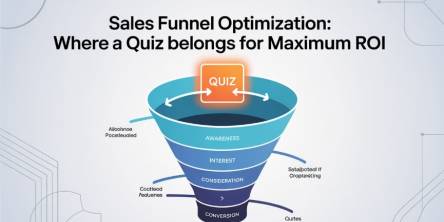Future of Digital Transformation

As always, the business is dead. Science fiction is becoming an increasing science fact. Digital transformation is more like a journey than a single leap from paper-based to digital technology and gaining digital competencies is an important part of the overall transformation strategy for companies on the path to digital innovation. A digital transformation strategy is an action plan aimed at consciously relocating an organization in the digital economy. Many organizations are transforming themselves and becoming more “digital”. A digital transformation plan like the McKinsey 7S digital transformation model is used to ensure that an organization is tuned in executing its strategy in a coordinated way.
Digital transformation is making a big difference in business processes and people, which are even more important than the technology itself. In other words, it's a broader business transformation. Digital transformation spaces are constantly changing at an alarming rate. Tracking trends and preparing for future change is critical to successful transformation. Currently business is experiencing unparalleled technological changes that are transforming every company in the world. This megatrend is called digital transformation.
1. Future Challenges of digital transformation
2. Future digital transformation uses all types of technology
3. Digital transformation change areas
4. Advantages of digital transformation
Future Challenges of digital transformation
Digital transformation has no ultimate goal. Everything is very dynamic and the goals change and evolve, so there is only a temporary end goal.it is better to take temporary end goal in mind and create a roadmap for the future.
Future Challenges of digital transformation will include
• How to transform the customer experience, Operational process and Business model, where should the company go? Who will lead the effort? How to "sell" the vision to key stakeholders, where should a company be in the digital ecosystem, how to make decisions during transformation, allocate funds quickly and dynamically, and what to do as the end goal of a digital transformation project always dynamic?
• How to Align with the virtual method to the company method and align skills, people, and alternate methods through virtual enablement?
• How to Create a plan like McKinsey 7S to broaden virtual management talents and verify management’s readiness for Implementing it?
• How to develop a brand-new company layout to embody the virtual lifestyle and verify new functionality wishes to broaden a virtual skills method?
• How to transition the personnel to the brand-new virtual company, align overall performance metrics, and plan to sustain?
• How to Alter organisational structure? Younger individuals of a company can be extra tech-savvy and apprehend era higher. However, the older extra senior individuals of a company have the higher commercial enterprise acumen.
• How to Think like a campaigner till the transformation
• How to maintain cooperation and coordination among crew silos and departments
• How to budget and useful resource allocation
• How to get the full backing of the management crew
• How to ensure regulatory and government compliance
The future digital transformation
The future digital transformation uses all types of technology. It is evolving at a pace that none of us has ever experienced. Tomorrow because of digital transformation, you will have positions like financial transformation consultants, SCM digital cloud transformation consultants, cloud consultants, digital security consultants, DevOps consultants, digital lean consultants and so on.
The digital transformation uses all types of technology to automate your business with Leadership development and Change management such as Cloud computing public cloud (45%) and Personal cloud (53%), ERP (Enterprise Resource Planning) software, CRM software (customer relationship management), HCM software (human capital management), SCM (Supply Chain Management) software, Business intelligence, Machine learning, Artificial intelligence, Predictive Analytics, Robotics, Industry 4.0, Internet of Things, Mobility and Cell technology (59%), Data Analytics/Massive information (58%) and APIs (40%), Data analysis, Digital security, and DevOps.
Digital transformation change areas
Research finds many digital transformations change areas including understanding customer wants and needs, increasing topliner revenues, opening new touchpoints for customers, automation of operations, knowledge sharing, performance management, digitizing parts of the business, creating new business models and Digital globalization. Virtual transformation is associated with people, approaches and technologies.
A Virtual Digital transformation roadmap of many companies consists of identifying your organization's ambitions based on where the value shifts, designing a transformation program for a profitable customer journey, making a difference through your partner ecosystem, reducing the risk of the transformation process to maximize the chances of success, improve techniques to boost up the virtual switch, update e-trade programmes and websites to lead them to a cellular-friendly environment, incorporate e-trade, cellular, web, social and carrier efforts to offer clients a clean experience, design a complete social media plan, redesign the complete customer support procedure to satisfy and ultimately exceed the expectancies of clients, allocate greater funding in IT and requirement of latest competencies.
The importance of digital transformation is felt when you aim at accelerated adoption, avoidance of costs, gaining an aggressive edge, improved efficiency, minimizing abilities shortage, defining ambition for the future and Mitigation of risks.
Advantages of digital transformation
Digitization improves efficiency through changing non-virtual procedures with virtual procedures or changing vintage virtual technology with new virtual technology. It also gives enterprises several advantages that include improving ordinary patron experience, leading to higher insights with the assistance of virtual analytics, encouraging departments to collaborate, improving innovation, pace and records protection and transparency, improving the information and skill set of employees, developing virtual leaders, rewire the company and increased people engagement and involvement.
Finally, beyond technology, we need to define true human value in this new digital ecosystem.
Similar Articles
In 2026, Microsoft Excel continues to power the U.S. business ecosystem, supporting over 80% of financial modeling, 70% of operational reporting, and nearly 65% of analyst-driven decision workflows across enterprises.
The rapidly growing volume and speed of digital transactions have had a whole lot of implications for businesses
We live in the age of cloud computing. That's plain to see. However, what may escape many are the operational and financial challenges of managing multiple independent clusters.
Times have changed and how! Take modern technology and the fast-paced digital economy, it is driving. Given the market conditions, any company's infrastructure has become more than just a technical detail.
It has been for everyone to see that the modern digital economy is distinguished by high volume, real-time financial transactions.
Business success has become reliant on efficiency and agility of the underlying technology infrastructure. Clearly, companies now depend on cloud computing to provide seamless services while managing exponential data growth.
Hospitals operate in environments where availability and patient safety are paramount at all times. As medical supply chains expand and regulatory oversight becomes more demanding, manual tracking methods introduce delays and risk.
Every sales funnel has one core goal: turn attention into revenue as efficiently as possible. Yet many funnels leak value at critical stages—visitors bounce, leads go cold, and sales teams chase prospects who were never a good fit.
Decentralized Finance (DeFi) has transformed how users earn passive income through blockchain-based financial systems. Among its most popular use cases,









